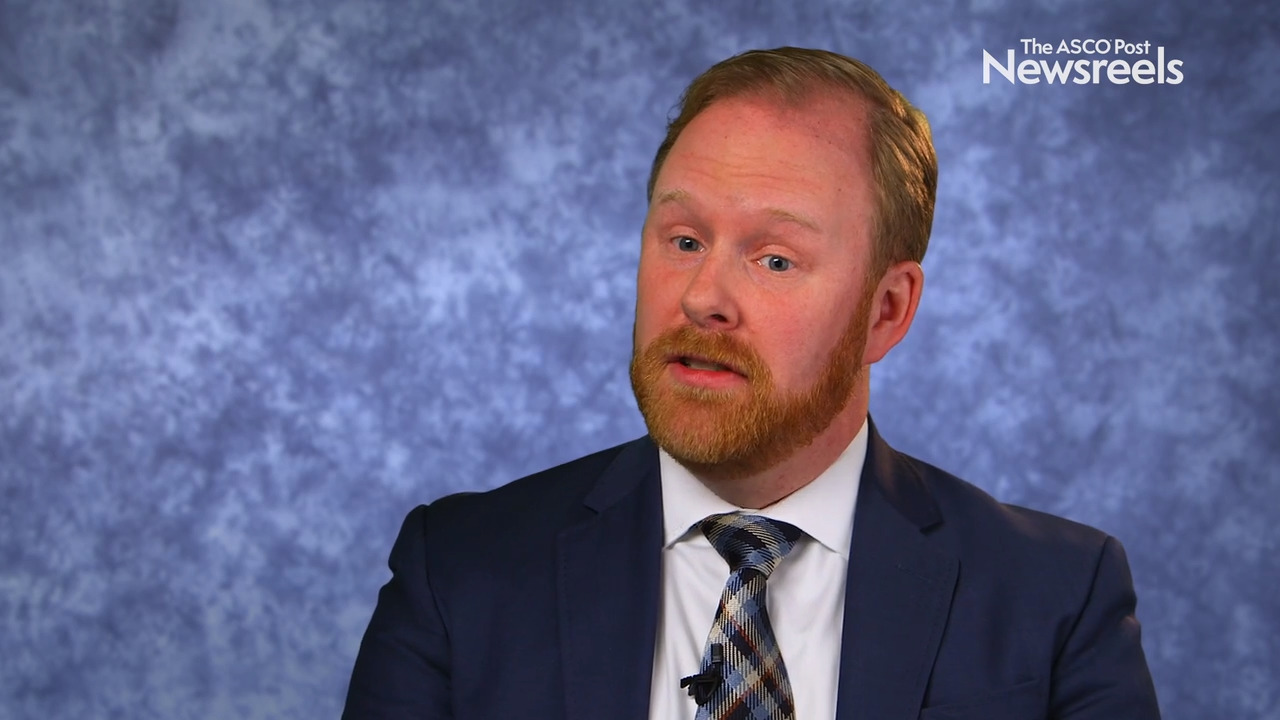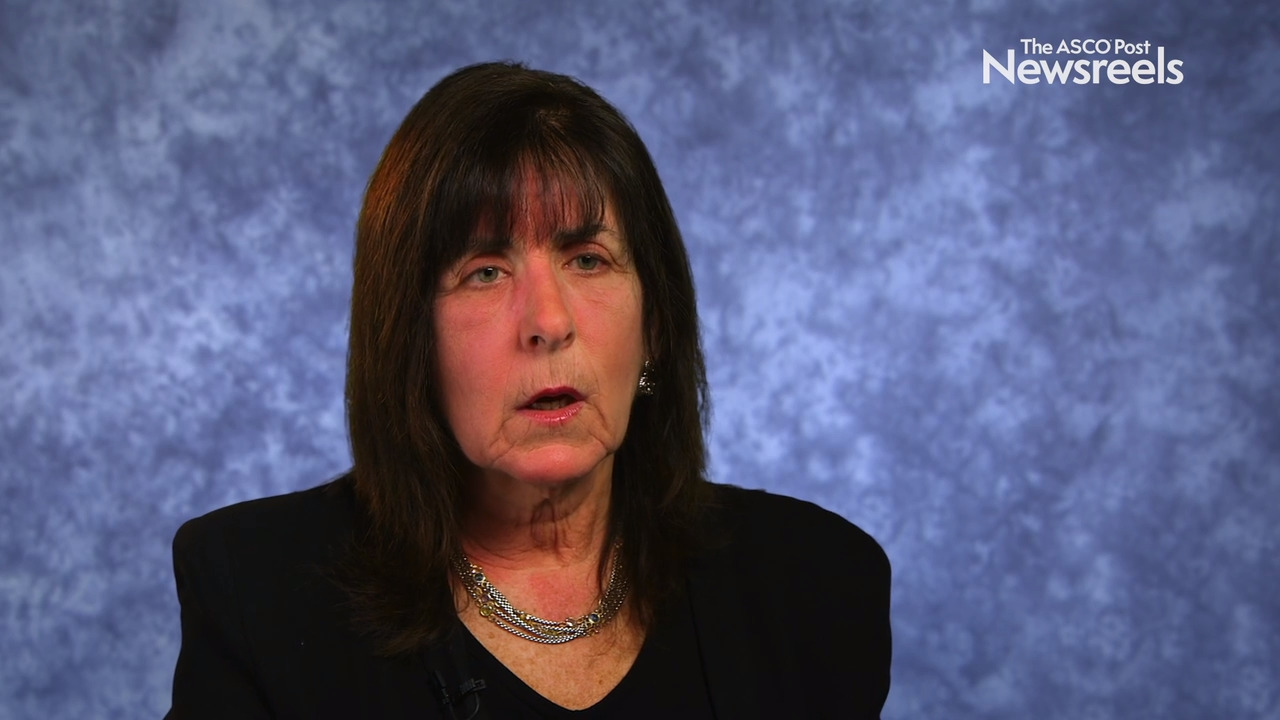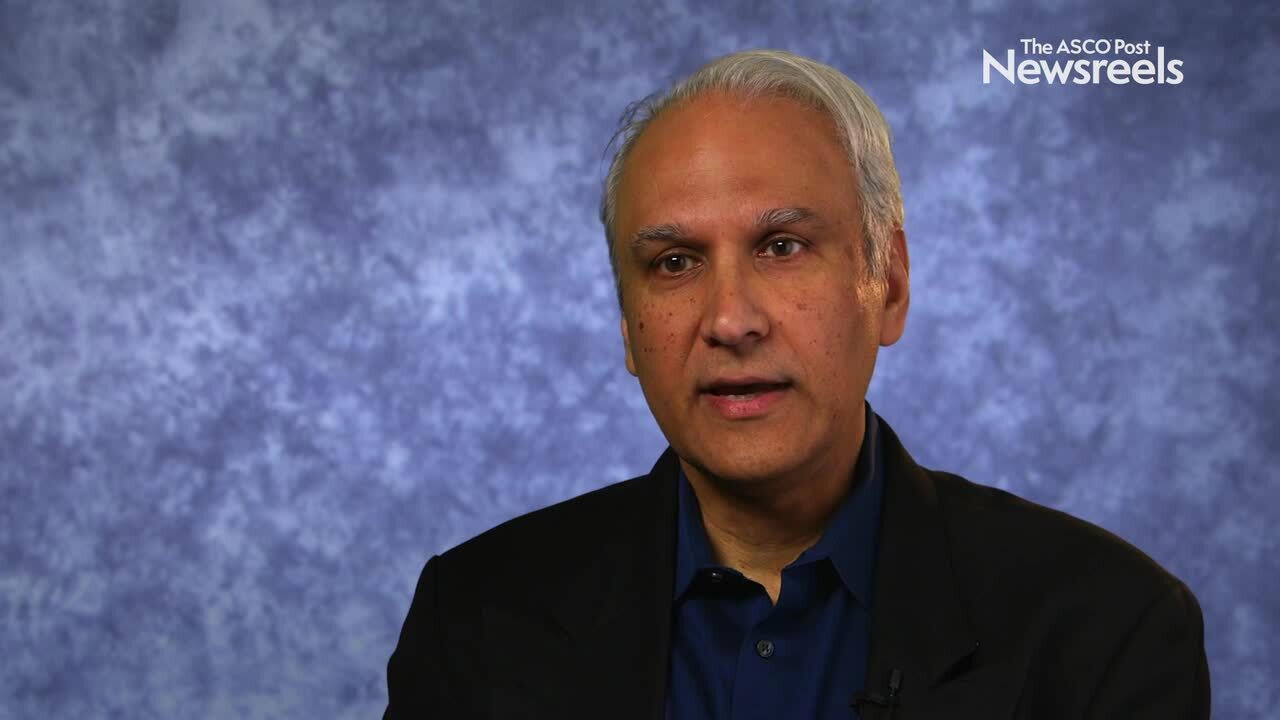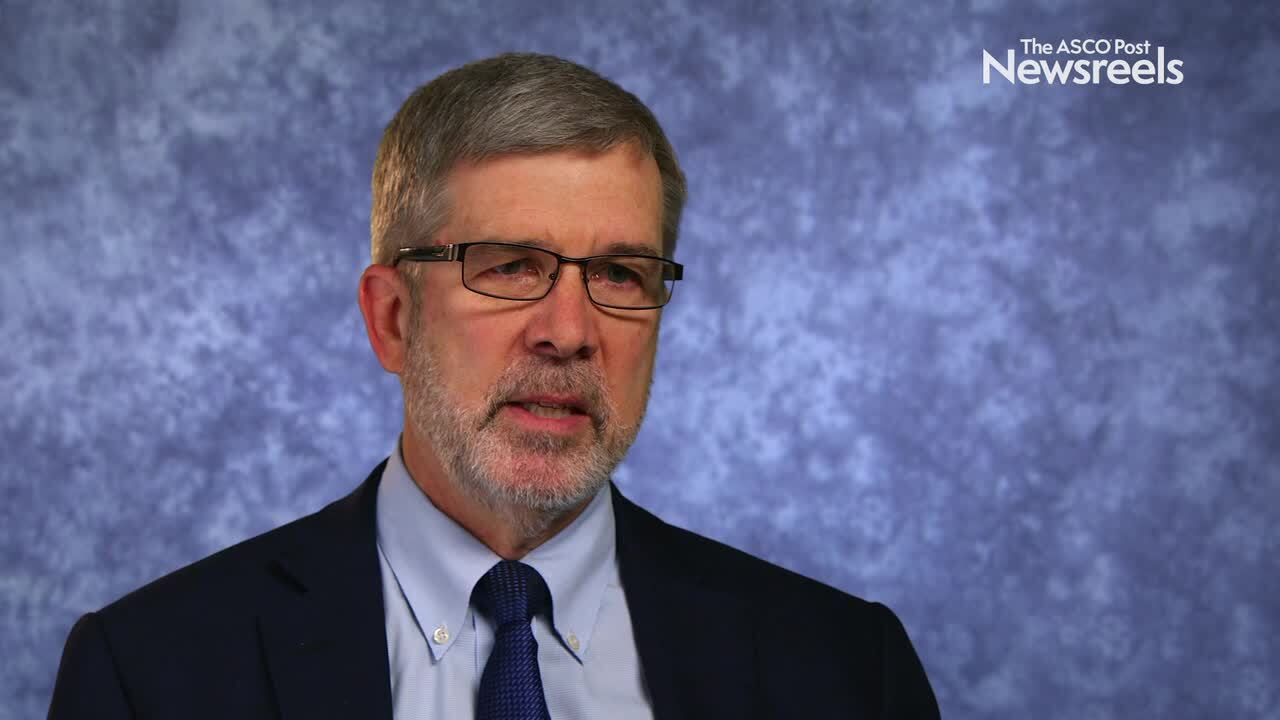Melinda L. Telli, MD, on NCCN Guidelines Updates for HR-Positive, HER2-Negative Early-Stage Breast Cancer
NCCN Annual Conference 2019
Melinda L. Telli, MD, of the Stanford Cancer Institute, discusses the various systemic therapies for patients with early-stage hormone receptor–positive, HER2-negative disease.
Matthew A. Gubens, MD, of the UCSF Helen Diller Family Comprehensive Cancer Center, discusses recent updates to the NCCN Guidelines in non–small cell lung cancer, including the use of pembrolizumab as a single agent or in combination based on PD-L1 status, treatment selection in squamous and nonsquamous patients, and how mutational status affects treatment strategy.
Wells A. Messersmith, MD, of the University of Colorado Cancer Center, discusses results of recent clinical trials, emerging treatment options, and approaches that may improve outcomes in patients with metastatic colorectal cancer.
Michelle B. Riba, MD, of the University of Michigan Rogel Cancer Center, discusses the prevalence of distress in patients with cancer, the need for a quick and simple screening method to identify patients with distress, and strategies for improving integration of psychosocial care into routine cancer care.
Neil P. Shah, MD, PhD, of the UCSF Helen Diller Family Comprehensive Cancer Center, discusses the feasibility of discontinuing tyrosine kinase inhibitor therapy in select patients with chronic phase chronic myeloid leukemia outside of clinical trials.
James L. Mohler, MD, of the Roswell Park Comprehensive Cancer Center, discusses updated recommendations in prostate cancer: more specificity for family history and genomic sequencing, as well as the evolving uses of androgen-deprivation therapy.





